My Trip to Portland, Home to Half of Team ReadWriteWeb
In June 2010, I make my first trip to Portland, Oregon, where many of our crew live. On a coworking day at a local cafe, I negotiate a tricky staff problem and also get to know the team better.
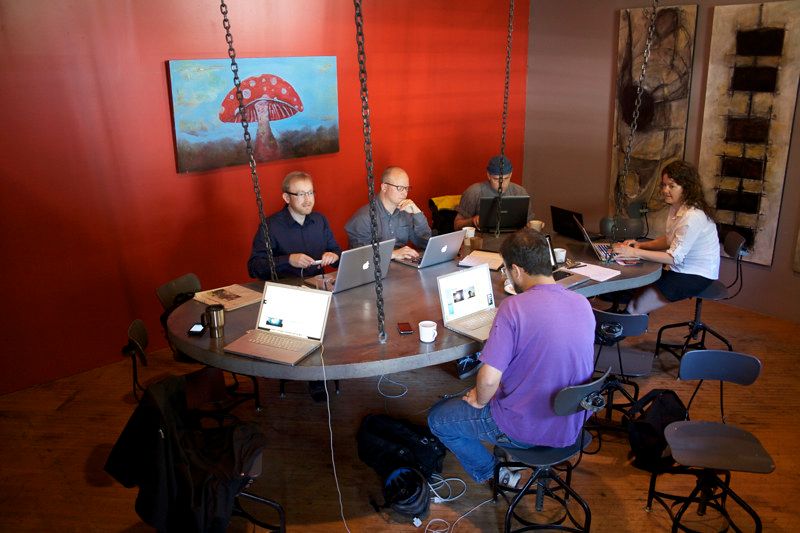
Note: This post is dedicated to Curt Hopkins, who sadly passed away in February this year at age 60. As you'll read below, we had a battle in June 2010, but we eventually made up. Curt added more social consciousness to RWW and I'm so glad he was part of the team.
In mid-June 2010 I visited Portland, Oregon for the first time. Almost half the ReadWriteWeb staff lived here, and I was looking forward to experiencing the famous “keep it weird” vibe of the city.
I met up with Marshall and a couple of other RWWers on Wednesday, June 16, in order to plan my itinerary. Thursday was my chance to meet our production editor, Abraham Hyatt, for the first time. Marshall would be there too, so essentially it would be an editorial management meeting. Then, on Friday, we’d invite the whole Portland-based team to do a full coworking day at a local café chain called Urban Grind.
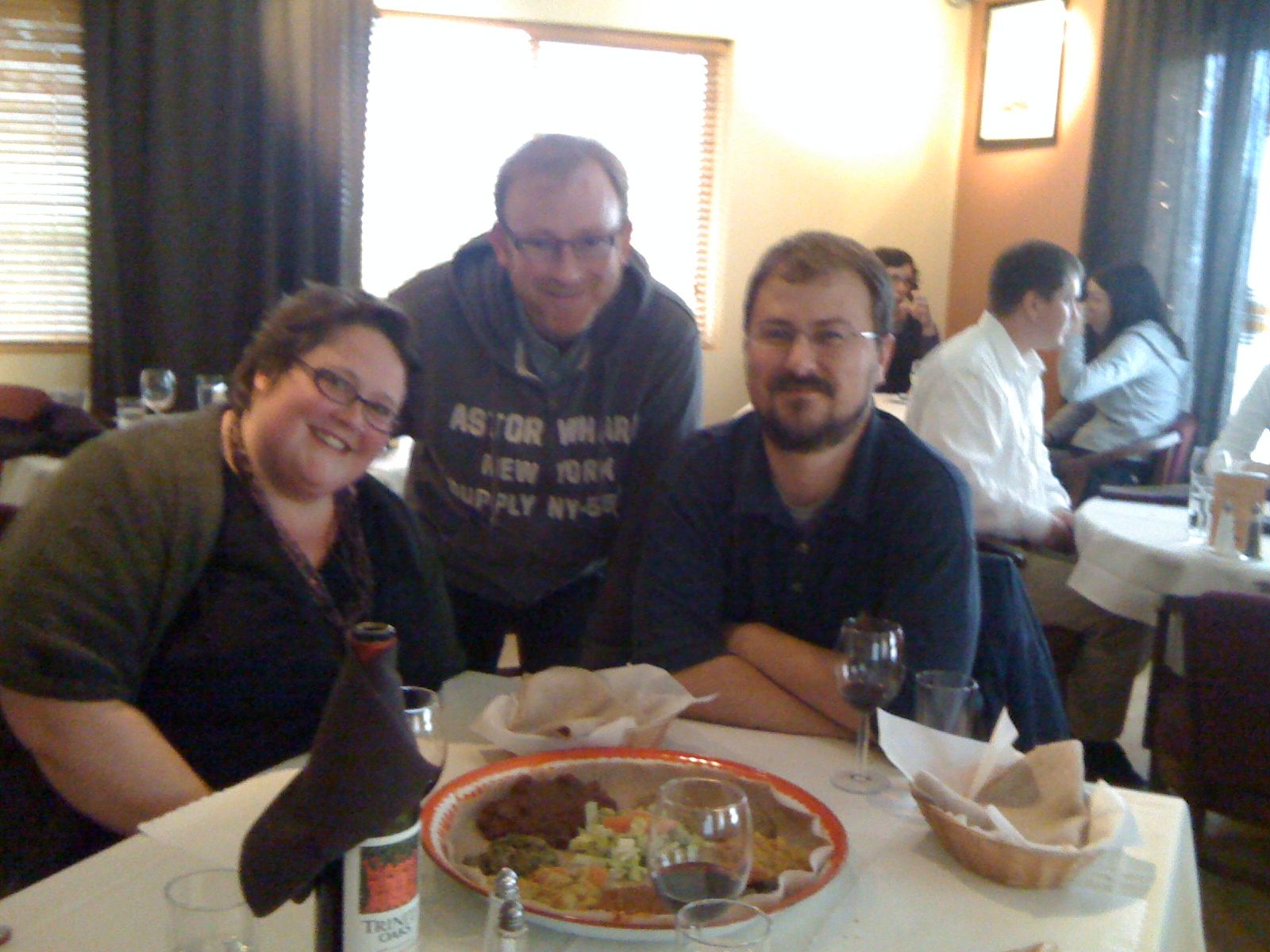
As planned, on Thursday I met up with Abraham at a café called Clyde Common. Marshall was running late, so it was just the two of us for a bit. Abraham turned out to be a tall guy with close-cropped dark hair, small round earrings in both ears, and a kind but inscrutable face. His right arm had a prominent dark blue tattoo from the sleeve down, but it had no design—it was as if half his arm had been painted over. He was wearing a plain white T-shirt and blue jeans, and I got the impression this was his daily uniform. The overall effect was of someone who’d had an interesting past but didn’t particularly want to tell you about it.
Abraham was a friendly and attentive guy, though, so we quickly gelled. Which was good because we had some staffing issues to discuss that day. A couple of our writers were underperforming, and we’d need to decide what to do about that. But a more pressing issue had come up earlier that day regarding Curt Hopkins, a relatively new, older writer based in nearby Eugene.
We’d hired Curt at the end of March, but it had soon become obvious he was better at writing what I labeled “cultural” posts. For instance, he had an ongoing series called “Online Week in Tyranny” that discussed how the social web was being used cynically by certain countries. The content was compelling, although it wasn’t the tech news I’d hired him to write. Nevertheless, I appreciated that Curt gave a more critical perspective about technology than our usual consumer-internet fare.
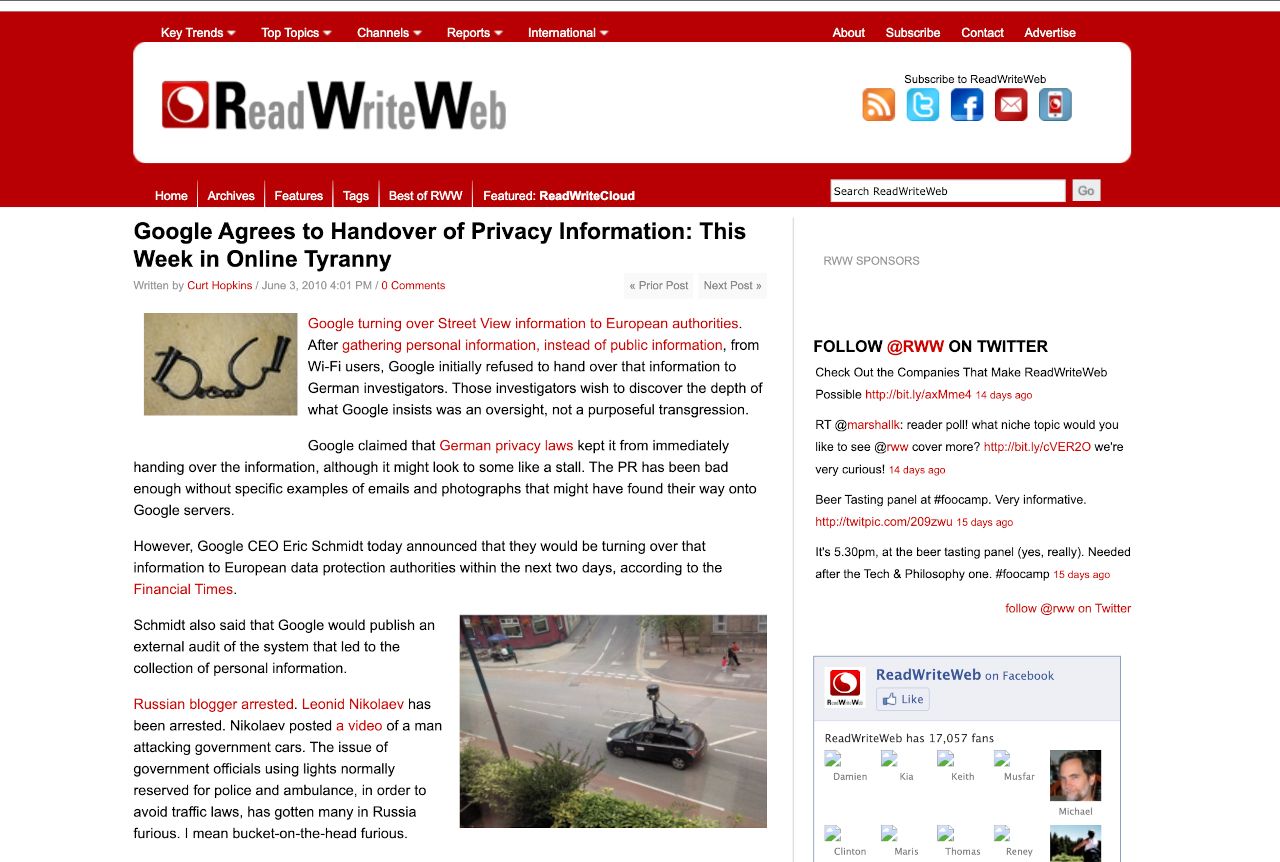
With this in mind, I’d emailed Curt that morning to suggest that we move him away from the news beat and onto a new “cultural” beat—with the same quantity of posts per day and same pay, so there would be no changes there. We’d be hiring another freelancer to take over the news role, I told him. He responded positively to my suggested role change, but added, “Why hire additional people when there are people who would like to go full-time?” I replied that this is something I’d address in the Friday team meetup.
We were already negotiating with Frederic to bring him on full-time, but we were waiting on him to tell us his decision. Frederic was based in Portland but was out of town that week, so unfortunately, I wouldn’t get to see him. In any case, I was planning on telling our Portland crew that we were open to bringing on more writers full-time, but that it would be a slow process for a variety of reasons—including our budget after the event loss and the low premium report sales.
Soon after this brief email exchange with Curt about the role change, he sent me a much longer Google Doc that outlined his thoughts on RWW’s direction. I hadn’t asked for this document, so it came as a surprise. I hadn’t had time to fully absorb it before my meeting with Abraham and Marshall, but I noticed that it listed a number of grievances. Among other things, Curt claimed there was “little in the way of reference material relating to policy and process” in the company and an “absence of clear guidance and expectations” from leadership. He complained about the coeditor role that Marshall and I shared, as an example of leadership issues, and said that the writers were not paid enough. There were also some odd strategic suggestions, such as “rethink the channels—fold them into the main page.”
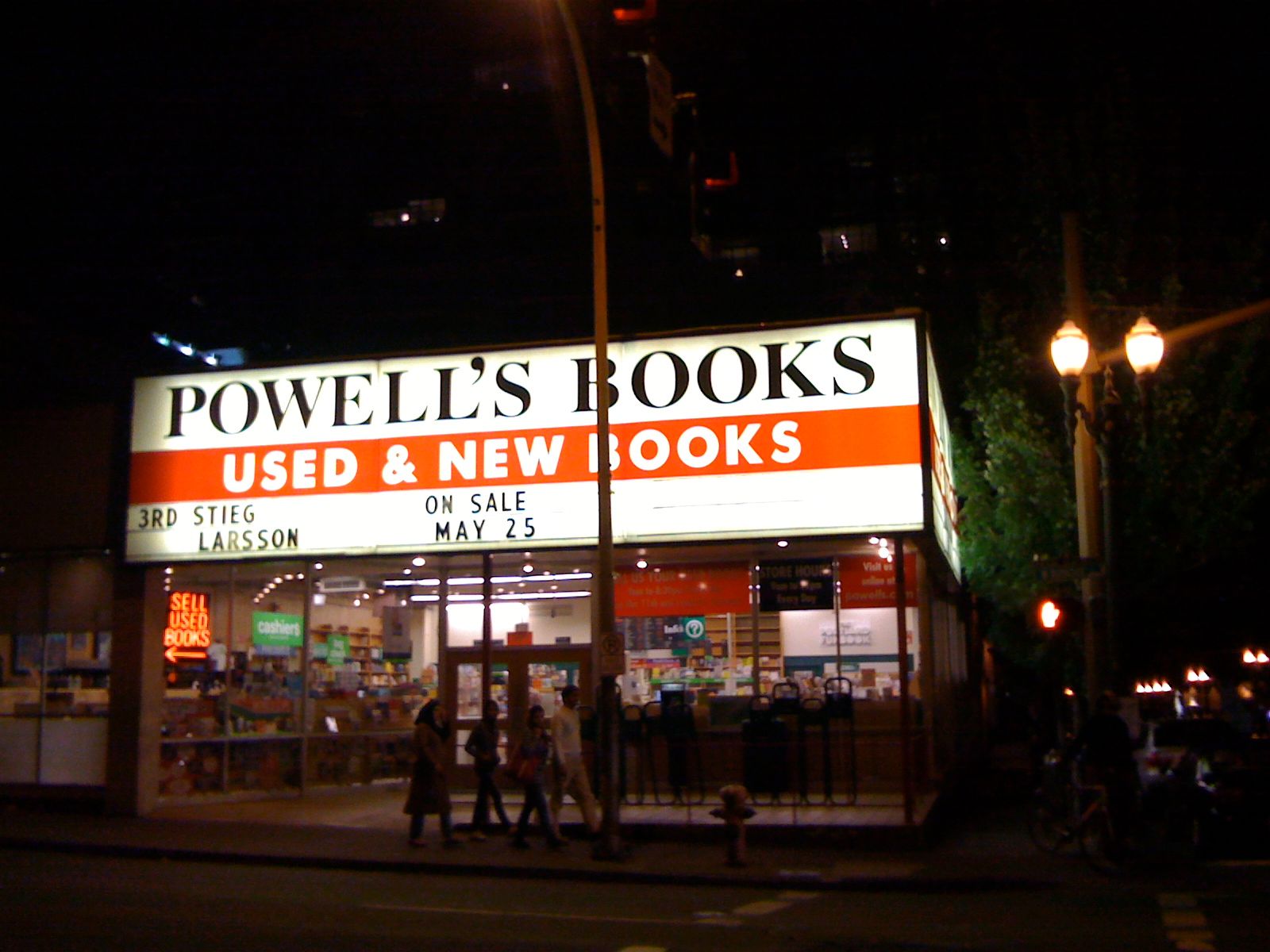
When Marshall arrived at the café, we began discussing Curt’s screed. As I reread it with them, I found my anger rising. This was a highly presumptuous document from someone who had worked for us for less than three months, and I vehemently disagreed with a lot of his points. I knew that our writing and editorial guidelines were better than those of many of our blog competitors (we’d been told this by some of our own writers who had previously worked for other blogs). The coeditor concept was something I’d borrowed from TechCrunch, since Mike Arrington had appointed Erick Schonfeld his coeditor in 2007 and I later thought a similar setup made sense for RWW. The pay criticism was fair, but what we paid our writers was the same as all the other leading tech blogs—and higher than rates at many pro blogs. Of course, there were things we could be doing better, but we were a small, fast-growing, international and virtual media company—not a local town newspaper with an office downtown and decades-old policies and procedures.
I’d already run Curt’s document past Sean, who had told me it lacked context. He wondered if this was a roundabout way to ask for a full-time job with benefits. Back at the café, Marshall, Abraham, and I agreed that I should talk to Curt separately tomorrow. He would be coming to our coworking meetup, which would include an editorial meeting.
By the evening, however, I was pretty worked up about Curt’s document. I didn’t want to be told how to run my business, just as I didn’t want people telling me how to run my life—which had been, at core, my issue with Elyssa. Perhaps equating this situation to a recent personal relationship breakup was overly sensitive. Nevertheless, I couldn’t resist continuing the back-and-forth with Curt by email. I wrote, rather unkindly, that his document had made me question if he was suitable for the professional blogging business. “Hopefully tomorrow we can give you the guidance and expectations that you’re looking for, but if you’re still unhappy after tomorrow I suggest we part ways ASAP.”
He replied just as angrily, and the situation was in danger of spiraling out of control. But thanks to some sage counseling from Marshall and Sean, I de-escalated matters by promising Curt we’d talk about it in person tomorrow. Perhaps Marshall had also reached out privately to Curt (he’d known him for longer than I had), because Curt quickly calmed down too. “I am mortified by the ‘drama,’” he wrote, several emails in. “I was merely trying to contribute, however pear-shaped the results were.” He offered to not come to the team gathering tomorrow, but I assured him I wanted him there. “Let’s you and I discuss, just the two of us,” I wrote. “I like your writing and I want you to continue, so I’m sure we can work it out.”
RWW Coworking Day
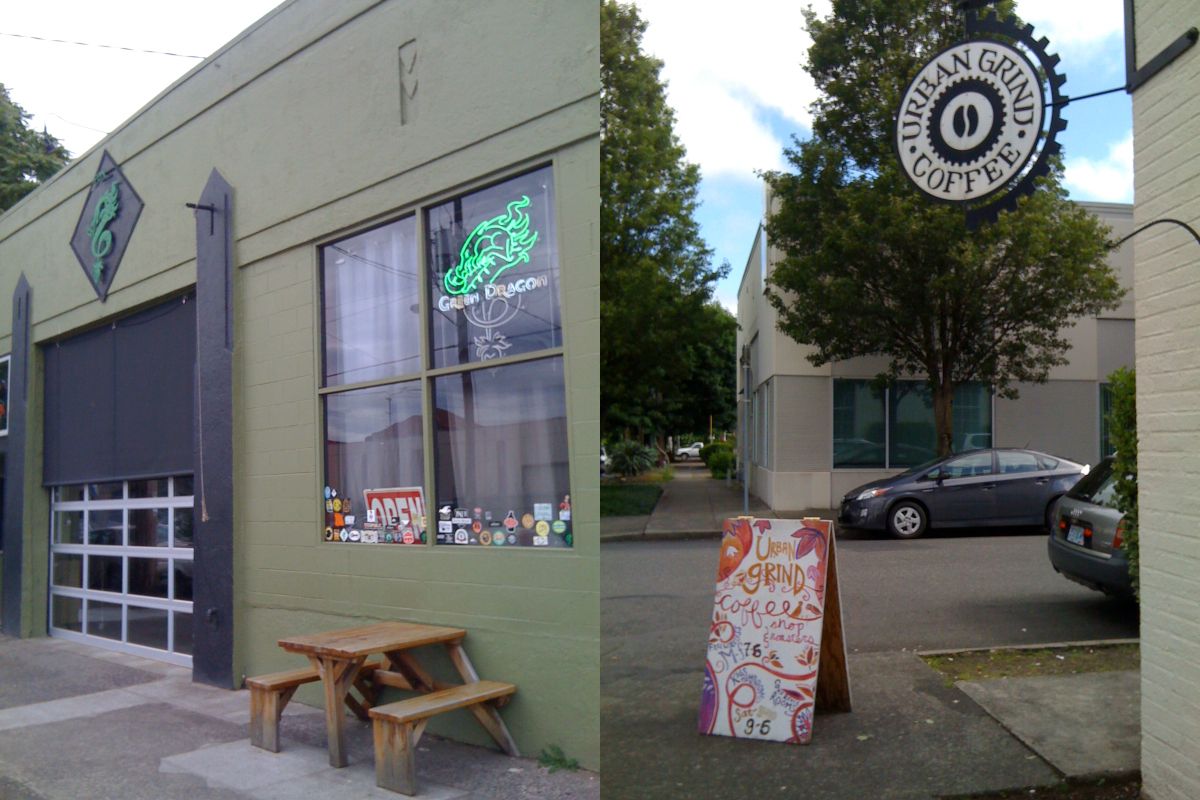
Team RWW’s coworking day had been scheduled at the Urban Grind café in northeast Portland. It was a chain with multiple locations, but Abraham had specified it was “not the one downtown” and that the “eastside location will be quieter.” He’d arranged a private room for us, which was located down the hall to the left of the cashier.
The room was spacious, with mostly cinnamon-brown walls (one wall was bright red) and high windows that you couldn’t look out of. The brown walls were dotted with abstract paintings, while the red one had a single large painting depicting a giant red mushroom set against an azure-blue sky. The weirdest thing about the room though was the table: a thick, silver, oval-shaped surface that hung from the ceiling by four hefty silver chains. As we all sat down and took out our laptops, the table gently swayed. A few of us looked warily up at the high ceiling, afraid the whole thing would crash down on us.
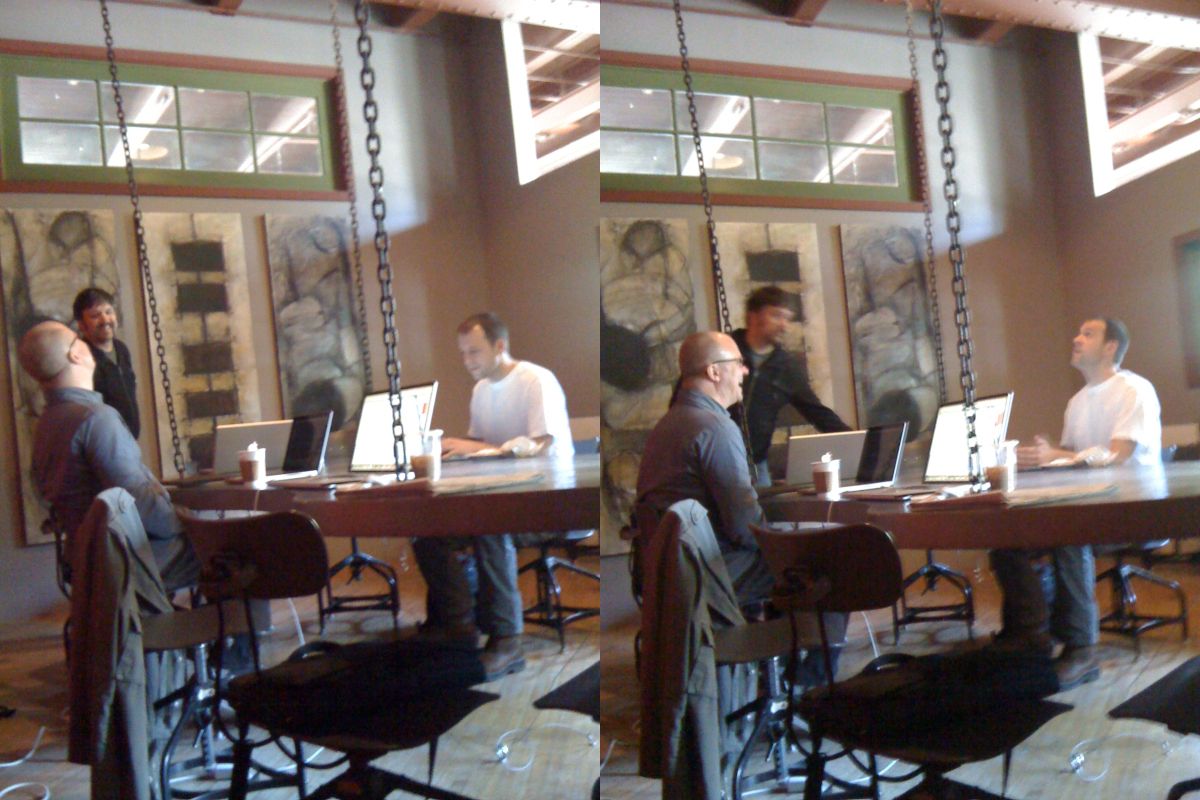
Soon we had a quorum of RWWers around the table. I sat next to Alex Williams, and on the other side of Alex was Deane Rimerman, a freelance researcher. On my left was Justin Houk, a government agency worker who was interning with us, and on the other side of the table were Marshall, Abraham, and Audrey Watters. Like Curt, Audrey had started toward the end of March. She was probably about my age but had spent almost her entire career so far in the academic field—most recently studying toward a comparative literature PhD. She was similar to Frederic in that regard, and like him, Audrey had quickly adapted to the blogging world.
Tyler Gillies, our “in-house hacker” as Abraham dubbed him, arrived soon after. My antagonist, Curt, was the last to arrive. He’d had to make a two-hour bus trip from Eugene, so he got in around lunchtime. It was awkward at first. He was a thickset guy in his mid-forties, with a greying goatee, thinning hair, and a pair of large tortoiseshell glasses. He had an aggrieved look in his eyes, but I suspected that was the case most of the time. I could sense we were both on edge, so I suggested we go to the main café and have a chat. Marshall gave me a wry smile and an encouraging pat on the back as Curt and I exited the room.
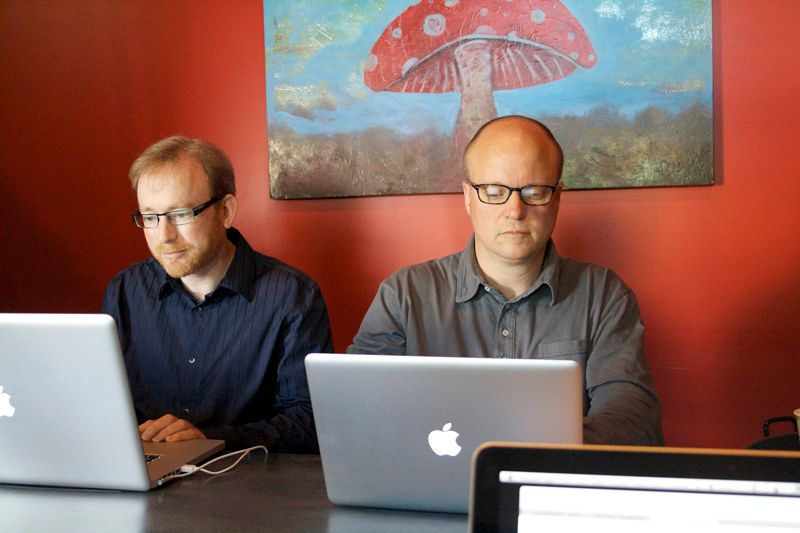
Over coffee, I began to see a different side to Curt. He was a poet, I discovered, and like me was an English literature graduate. I soon realized that his gruff exterior hid a sensitive soul, and so my attitude toward him began to soften. I told him I appreciated the type of writing he did for us, which analyzed the impact of web technology from an ethical and societal point of view—Marshall did some of that type of writing too, but Curt had doubled down on it. I also explained the situation with our budget and the many practical issues I had running a virtual company from New Zealand. So eventually we understood each other better.
The Curt drama and resolution was a valuable lesson for me. It was only when I sat down with him that we began to grok each other’s perspective. It proved the value of regularly seeing your colleagues “in real life,” so I resolved to make the effort to meet with RWWers in person as much as possible going forward. It was hard running a business virtually, especially from a tiny country across the world, so it also reinforced that having a US base for the business would be best long-term. I still didn’t know how I’d achieve that—would I raise money here in the States or try to sell the business again? Once more, I filed away that question.
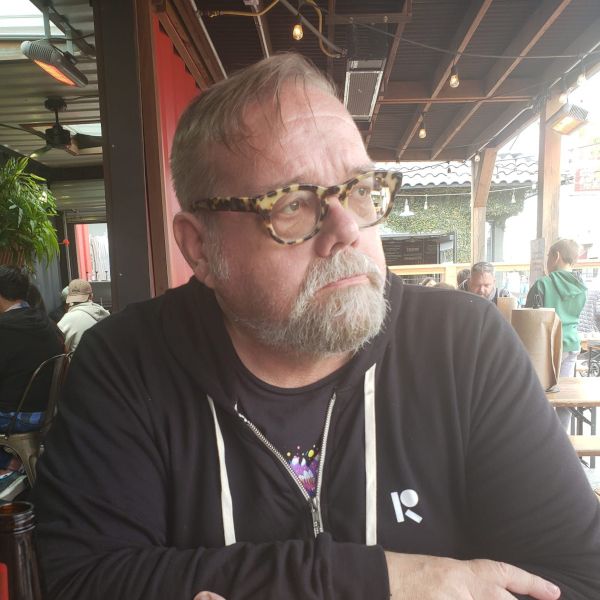
Later in the afternoon, the team made our way to the Green Dragon bar for Beer & Blog, a weekly meetup for the Portland startup community. The turnout was excellent, and I enjoyed meeting a variety of Portland bloggers and techies. One of them was Rick Turoczy, who ran a local tech blog called Silicon Florist, a reference to Rick’s focus on covering startups from the “Silicon Forest”—Portland and the surrounding Oregon area. Rick had written for RWW for several months at the end of 2008, so he was a familiar name to me, but this was our first in-person meeting.
I also met Amber Case, a rising star in the Web 2.0 ecosystem. She was in her early twenties at this time and fashioned herself as a “cyborg anthropologist.” Like me, she had been invited to O’Reilly Media’s Foo Camp in Sebastopol, California, the following Friday—an annual schmooze fest I’d wanted to attend for a while but had never quite made it. I hadn’t worked out how I’d get to Sebastopol, though, which was about an hour’s drive from San Francisco. Amber said she’d been offered a lift by local entrepreneur Nate DiNiro, who was also at Beer & Blog that night. She introduced me to Nate, who said he was happy to drive us both. It was this type of in-person connection that made traveling in the States so worthwhile.
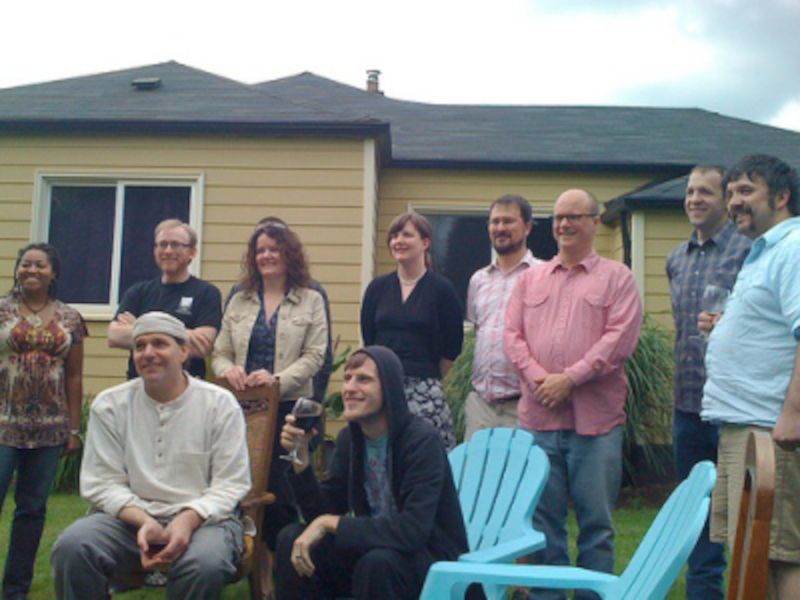
As my Portland visit neared an end, Marshall and Mikalina hosted a Team RWW dinner at their house on Saturday. I told everyone that I’d enjoyed my time in Portland and had found it to be an easygoing, cool city. I half-jokingly said it was a bit too hippie for me to want to live there, but I wanted to visit again soon.
This post is part of my serialized book, Bubble Blog: From Outsider to Insider in Silicon Valley's Web 2.0 Revolution. View table of contents.
Next up: 053: Foo Camp 2010 and Going Exponential at Singularity University
Buy the Book
My Web 2.0 memoir, Bubble Blog: From Outsider to Insider in Silicon Valley's Web 2.0 Revolution, is now available to purchase:
- Paperback, US$19.99: Amazon; Bookshop.org
- eBook, US$9.99: Amazon Kindle Store; Apple Books; Google Play
Or search for "Bubble Blog MacManus" on your local online bookstore.